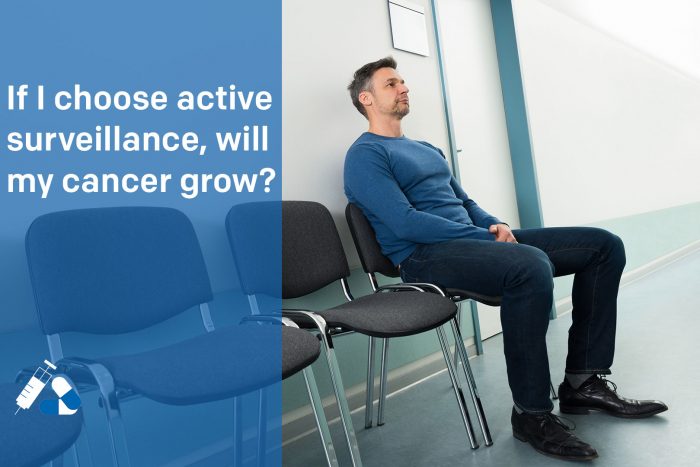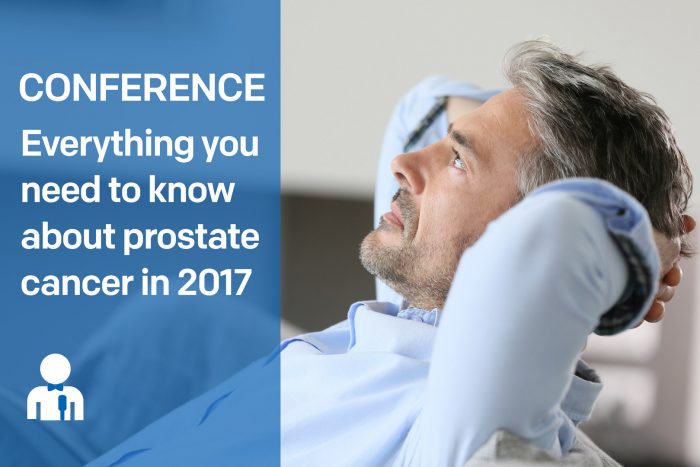As any doctor knows, the right treatment is the most appropriate treatment for the patient, active surveillance included. It’s important to understand these two principles. The first is that the wrong diagnosis (and by that, I’m not talking only about the “diagnosis” of prostate cancer, but the identification of the level of risk of the latter) can result in insufficient or excessive treatment with serious consequences such as a reduced risk of cure or unnecessary and increased side effects. The second is that prostate cancer usually grows quite slowly – a delay of one or two months will not usually change the patient’s prognosis.
And active surveillance?
“It is about doing nothing, or almost nothing, according to the feeling of some. This is not true though. Active surveillance involves actively monitoring the disease (as its name suggests). In fact, for some patients with a low-risk disease that is unlikely to progress (at least at the time of diagnosis), the doctor may recommend not treating the disease. This does not mean “being off”, however.”
“Regularly (over several months), the patient will have a PSA test and a digital rectal examination to make sure that the disease does not progress. After one year, we may want to repeat the biopsy, again to make sure the disease remains relatively stable. In case the disease changes, it is possible to consider treatment (such as surgery or radiotherapy) at the appropriate time.”
Which treatment to choose? Perspective of Dr. Peter Vavassis – Passage from the book Le cancer de la prostate en noir & blanc, co-authored by Jean Fils-Aimé and radio-oncologist Peter Vavassis.
Is it for me?
In agreement with the Canadian Cancer Society, you may be offered active surveillance if:
- your cancer is a low grade with a Gleason score of 6 or less
- your cancer is an intermediate grade with a Gleason score of 7 and it hasn’t spread outside of the prostate
- your prostate-specific antigen (PSA) level is less than 10 ng/mL
- your cancer isn’t causing any symptoms
- you prefer not to have treatment right away so you can avoid treatment-related side effects and keep the quality of life that you are used to
- you are older or have severe medical problems and your life expectancy is less than 10 years
What if it progresses?
It is natural to be concerned about the likelihood that your cancer may grow and spread faster than expected and that you suddenly end up with cancer without the possibility of recovery. It must be admitted that this scenario is rare. Some men may find it too stressful to be actively monitored without receiving active treatment. In such a case, and if you are concerned, talk to your doctor.
Take the time to visit each of our pages on this website, as well as our YouTube channel, in order to get familiar with the disease with our expert lectures, our section on available resources, the support that is offered to you.
Do you have any questions or concerns? Above all, do not hesitate. Contact us at 1 855 899-2873 to discuss with a nurse specializing in uro-oncology. It’s simple and free, like all our services.
Conference that might interest you
Pages of our site that might interest you
Want to know more? Just click on one of the links below
Is active surveillance an option for me?
Prostate cancer: Can I prevent it?
The latest PROCURE news that might interest you
Every week we publish a blog article. Here’s one we chose for you
I have several treatment options… Which one to choose?
Sources and references
Canadian Cancer Society
Le cancer de la prostate en noir & blanc
Adapted by PROCURE. © All rights reserved – 2020



 ADDITIONAL RESOURCES
ADDITIONAL RESOURCES


